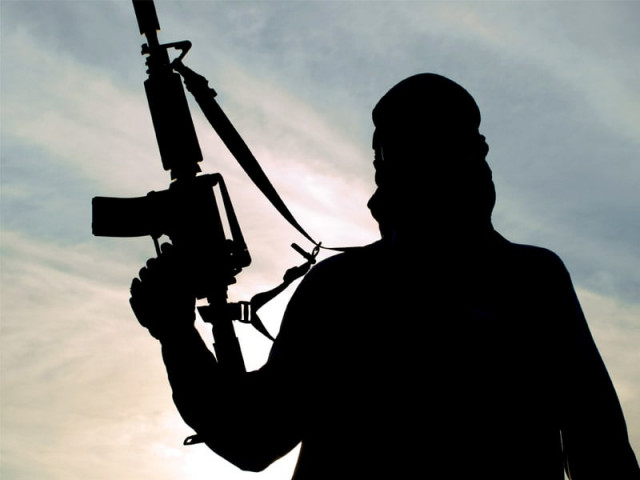Terrorism cases pending before courts for eight years
Anti-terrorism act mandates the court to decide the case within seven days of the charges being framed

Anti-terrorism act mandates the court to decide the case within seven days of the charges being framed. STOCK IMAGE
Sources told The Express Tribune that the Sindh High Court (SHC) recently shared these details with the apex court, which monitors the anti-terrorism courts and formulates policy guidelines for the early disposal of criminal trials. According to section 19(VII) of the Anti-Terrorism Act, 1997, the court must decide a case within seven days of the charges being framed.
The statistics revealed that 152 terror-related trials and 57 criminal trials have taken as long as eight years, primarily because the prosecution and the lawyers fail to implement the apex court's national judicial policy aiming to clear the backlog of cases.
Read: City witness reduction in some crimes, spike in others

The then chief justice, Iftikhar Muhammad Chaudhry, had formulated the country's first national judicial policy, which aimed at the quick disposal and speedy justice of cases of people whose woes had multiplied during the two years of street agitation for the independence of the judiciary.
Convicts appeals
The high court's statistics show that in 2010, around 38 appeals were filed by convicts through their lawyers or jail authorities against the decisions of ATCs in Karachi. "The litigation, right from its start before the relevant anti-terrorism court till today, has consumed around eight years," said a judicial source
ATA applications
According to the figures, 63 applications were filed with the SHC in 2014, challenging the verdicts of the ATCs established in Karachi. "The total time consumed by these trials is estimated to be between one year and seven years, with no decision yet," the source stated.
Similarly, 43 special ATA jail appeals were instituted in the high court in 2014. These trials have consumed one to six years. Eight special ATA acquittal applications were also instituted that have not yet been decided.
Sessions trials
The apex court has been informed that as many as 57 criminal revision applications were also instituted with the high court at the principal seat during 2014 against the verdicts passed by the sessions courts and the special anti-corruption and control of narcotics substances (CNS) courts in Karachi and Thatta.
"More than half of these applications were filed one-and-half years ago and are still pending," a source explained.
Negating the national judicial policy
Legal experts termed the delays in cases relating to terrorism and other offences as negation of the national judicial policy, which primarily aims to protect the rights of victims and suspects through speedy trials.
"The state cannot efficiently perform its duties for the dispensation of speedy justice to the masses and counter-terrorism without effective prosecution," remarked a judicial officer, who wished not to be named.
Read: Terrorism cases: Unfair to blame judges over delay in prosecution, says SC
Recently, the SC's monitoring judge for ATCs, Justice Amir Hani Muslim, had expressed serious concerns over the performance of the prosecution department in Sindh. The apex court had particularly asked the competent authority to consider assigning the post of the prosecutor-general to some competent person instead of the incumbent Sher Muhammad Sheikh, who was not even attending official meetings to review the performance of the ATCs. The prosecutor-general did not pick up his phone despite repeated attempts to contact him.
Some lawyers believe that the prosecuting agencies and the legal fraternity are to be equally blamed for what they refer to as delayed justice.
"The cases that are required to be decided within days have been pending for years. The state machinery, which includes the prosecution department, the specialised counter-terrorism agencies and the lawyers, is not letting the masses benefit from the national judicial policy," said a senior lawyer, seeking anonymity.
Among the pending terror-related cases is the appeal filed by Shahrukh Jatoi, Nawab Siraj Talpur, Nawab Sajjad Talpur and Ghulam Murtaza Lashari against their death sentence and life imprisonment awarded by an anti-terrorism court in the Shahzeb Khan murder case.
The convicts had reached a deal with the victim's family members, who had announced to forgive them 'in the name of Allah Almighty without accepting blood money.'
A Sindh High Court bench had asked the relevant ATC to verify the authenticity of the compromise signed between the two parties. In its report, the ATC judge had declared the compromise to be authentic. Ever since, a decision on the two death convicts' appeals is pending.
Published in The Express Tribune, July 6th, 2015.



















COMMENTS
Comments are moderated and generally will be posted if they are on-topic and not abusive.
For more information, please see our Comments FAQ